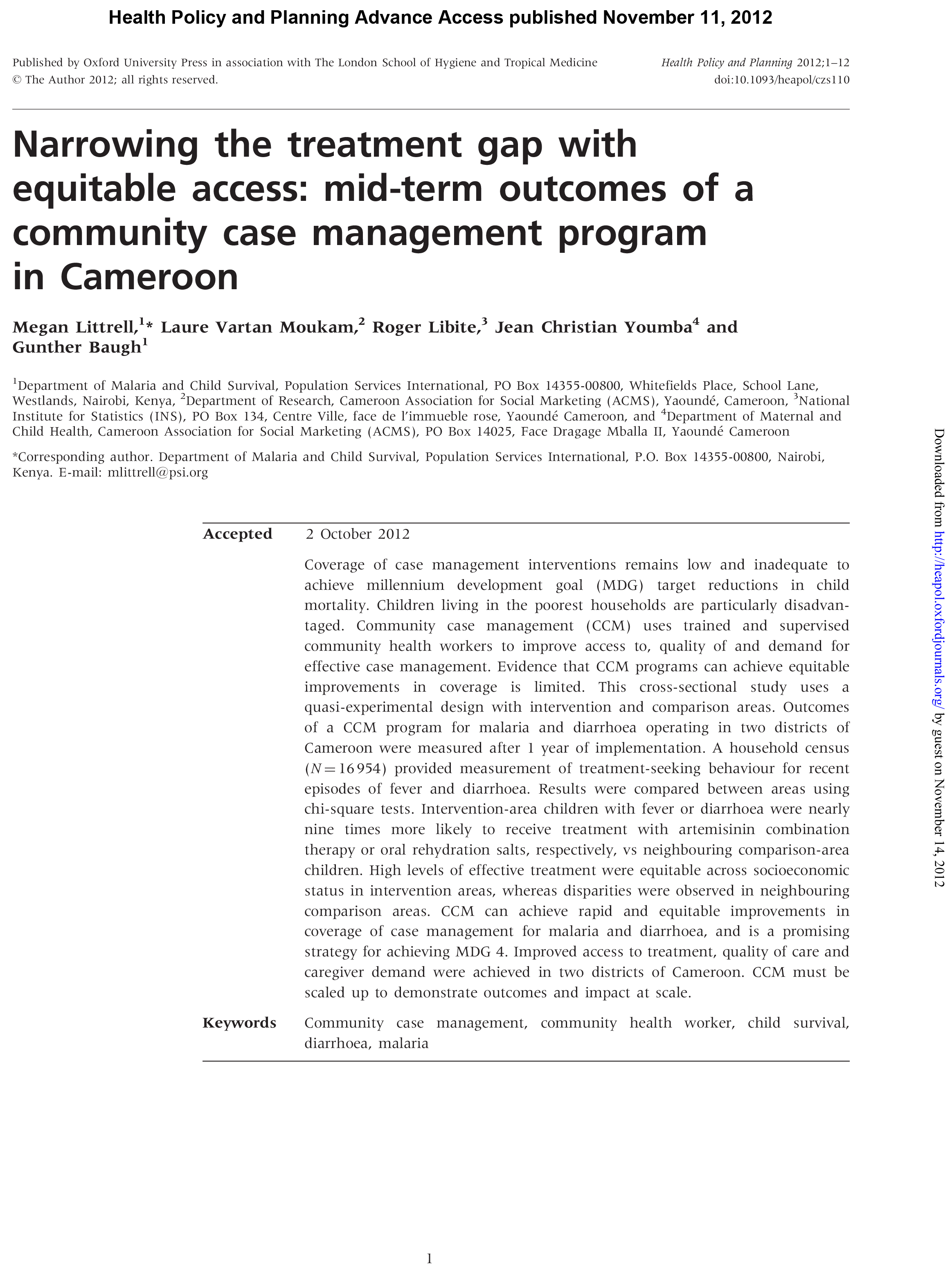
Resource Library
Narrowing the treatment gap with equitable access: mid-term outcomes of a community case management program in Cameroon
Coverage of case management interventions remains low and inadequate to achieve millennium development goal (MDG) target reductions in child mortality. Children living in the poorest households are particularly disadvantaged. Community case management (CCM) uses trained and supervised community health workers to improve access to, quality of and demand for effective case management. Evidence that CCM programs can achieve equitable improvements in coverage is limited. This cross-sectional study uses a quasi-experimental design with intervention and comparison areas. Outcomes of a CCM program for malaria and diarrhoea operating in two districts of Cameroon were measured after 1 year of implementation. A household census (N=16,954) provided measurement of treatment-seeking behaviour for recent episodes of fever and diarrhoea. Results were compared between areas using chi-square tests. Intervention-area children with fever or diarrhoea were nearly nine times more likely to receive treatment with artemisinin combination therapy or oral rehydration salts, respectively, vs neighbouring comparison-area children. High levels of effective treatment were equitable across socioeconomic status in intervention areas, whereas disparities were observed in neighbouring comparison areas. CCM can achieve rapid and equitable improvements in coverage of case management for malaria and diarrhoea, and is a promising strategy for achieving MDG 4. Improved access to treatment, quality of care and caregiver demand were achieved in two districts of Cameroon. CCM must be scaled up to demonstrate outcomes and impact at scale.
Resource Type : Brief
Country :
Year : 2012-01-01T00:00:00
Language : English
Project : SHOPS


